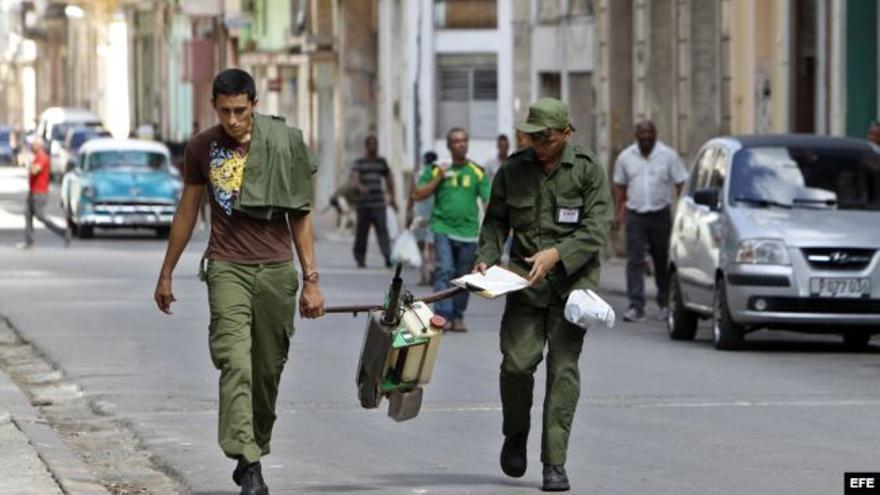
![]() 14ymedio, Miami, 23 August 2019 — International health authorities did not raise the alarm about an outbreak of the Zika virus that spread in Cuba during 2017, a year after the end of the global health emergency was declared, according to several scientists cited by The New York Times .
14ymedio, Miami, 23 August 2019 — International health authorities did not raise the alarm about an outbreak of the Zika virus that spread in Cuba during 2017, a year after the end of the global health emergency was declared, according to several scientists cited by The New York Times .
Until now, the Pan American Health Organization (PAHO) had no record of any Zika infection in Cuba in 2017, much less of an outbreak, the report said. But after the NYTimes inquired about the new study published in the journal Cell, international officials acknowledged that they had not counted 1,384 cases reported that year by Cuban officials.
The figure represents a large increase over the 187 confirmed cases in 2016 and “matches the estimates for 2017 from our own study,” Kristian Andersen, an infectious disease researcher at the Scripps Research Translational Institute in La Jolla, California, told the American newspaper. Andersen is one of the co-authors of the research.
In the most complex period of the outbreak, Cuba was experiencing a boom in the arrival of tourists, attracted by a chance to see the last stronghold of the Cold War in the West, which seemed to be opening itself to the market. In 2017, about 4.7 million travelers visited the Island and could have been exposed to the disease without receiving prior warnings.
PAHO officials said that due to a “technical problem” they had not reported the Zika outbreak on the Island in a timely manner. The Cuban Government maintains excellent relations with that entity which is a part of the World Health Organization.
PAHO helped Cuba to establish a multi-million dollar business to provide medical services in Brazil. Several of the doctors who participated in that program denounced the organization and the health authorities of the Island for participating in a plot of “exploitation” and “modern slavery.”
In November 2016, the World Health Organization reported an end to the Zika health emergency, however, many experts were not satisfied with the decision. In Florida, Zika cases affecting travelers returning from Cuba continued to be recorded, reaching 97% of the cases reported in 2017, the NYTimes notes.
Kristian Andersen and her team dedicated themselves to investigating how many European tourists returning to their countries from Cuba were also ill and developed a statistical model that showed that the Zika epidemic in Cuba was as strong as that in other Caribbean islands. “We are talking about tens of thousands of cases,” said the scientist.
In Cuba, which has one of the most developed health systems in the region, the epidemic did not go unnoticed. Thousands of people were admitted to special wards for patients with dengue and Zika.
Yaima, 43, was one of the many people who contracted Zika in Cuba in 2017 and chose not to go to the hospital. “I realized that I had the disease from the redness in my eyes and muscle pain. I also knew that in the neighborhood where I live there were other infected people,” she recalls.
“I preferred not to report my case so they would not send me to the hospital, because the wards are very deteriorated and I was afraid of catching some other disease,” she says. “The family doctor’s office in my neighborhood works very irregularly, so I didn’t take the trouble of lining up to tell the doctor how I felt.”
A doctor involved to the campaign to eradicate the Aedes mosquito that transmits the disease told 14ymedio, anonymously, that the authorities “handle stealthily” cases of epidemics such as dengue and Zika because “they can cause a loss of prestige for a country that exports medical services to much of the world “
“Tourists are treated in special hospitals. But the directions we have are not to talk about the epidemic,” he said.
_________________________
The 14ymedio team is committed to serious journalism that reflects the reality of deep Cuba. Thank you for joining us on this long road. We invite you to continue supporting us, but this time by becoming a member of 14ymedio. Together we can continue to transform journalism in Cuba.
